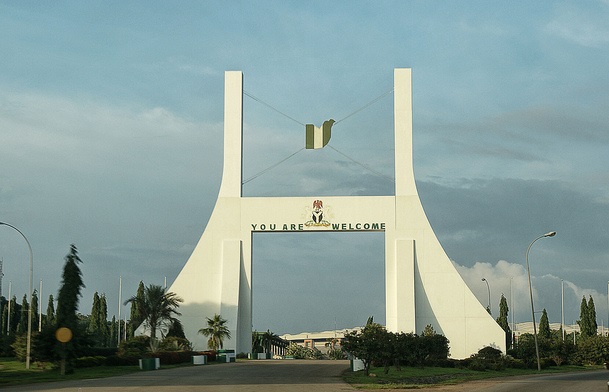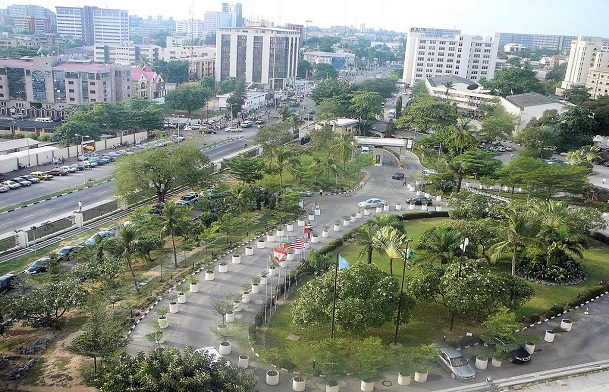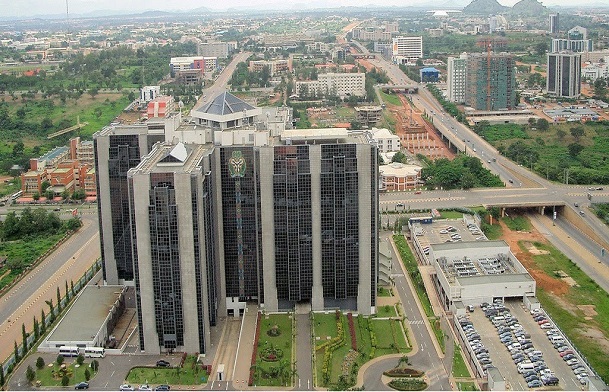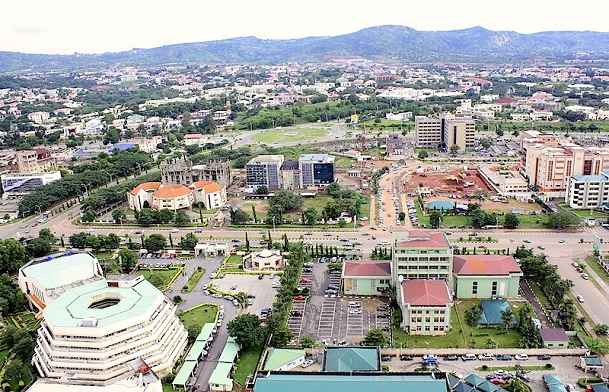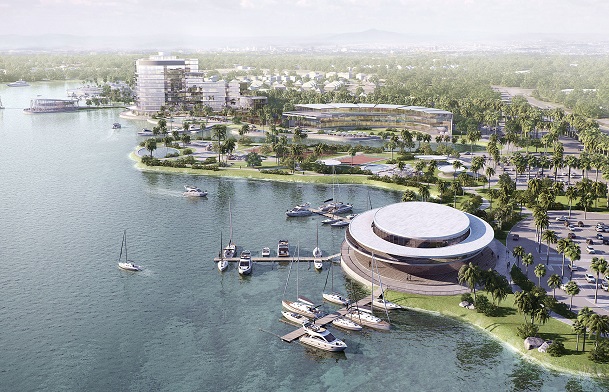Abuja is located in the centre of Nigeria, within the Federal Capital Territory (FCT). Abuja is a planned city, and was built mainly in the 1980s. It officially became Nigeria's capital on 12 December 1991, replacing Lagos, though the latter remains the country's most populous city. At the 2006 census, the city of Abuja had a population of 776,298, making it one of the ten most populous cities in Nigeria.
Abuja has witnessed a huge influx of people into the city; the growth has led to the emergence of satellite towns such as Karu Urban Area, Suleja, Gwagwalada, Lugbe, Kuje and smaller settlements to which the planned city is sprawling. The unofficial metropolitan area of Abuja has a population of well over three million and comprises the fourth largest urban area in Nigeria, surpassed only by Lagos, Kano and Ibadan.
History
The land now called Abuja was originally the south-western part of the ancient Habe (Hausa) kingdom of Zazzau (Zaria). It was populated fore centuries by several semi-independent tribes. The largest of the tribes was Gbagyi (Gwari), followed by the Koro and a few other smaller tribes. In early 1800s when Zaria fell to Fulani invaders, Muhammed Makau, fled south with some followers and his brothers- Abu Ja and Kwaka. Abu Ja succeeded Makau in 1825.
The full name of the king was Abubakar; Abu was his nickname. By some accounts his fair complexion earned him the nickname “Ja” which means “red” or “fair-skinned” in Hausa. He became known as “Abu-Ja” meaning Abu the red” or “Abubakar the fair one “other sources say that the “Ja” is a shortened form of Ishaku Jatau, his father’s name. King Abubakar founded the kingdom of Abuja.
Abuja became a major commercial centre where goods were exchanged by long distance traders. The inhabitants successfully fought off the Fulani and were not conquered as the neighbouring lands were. In 1902, Abuja was occupied by the British colonial army. The British re organised the kingdoms and called them “emirates” which means “kingdoms” in Arabic. Until 1975, it remained a quiet part of Nigeria
The problems associated with the capital being in Lagos, as mentioned earlier, led to the search for a new capital that year. Abuja was selected from amongst 33 possible sites. The criteria used for selection included: centrality, healthy, climate, land availability and use, water supply, multi-access possibilities, security , existence of resources, drainage, good soil, physical planning convenience and ethnic accord. The Emir of Abuja at the time, Altai Suleiman Bara, was asked to meet with his Emirate Council to approve contributing four of the five districts to Abuja to become the new capital. The council was divided as some districts considered it too much of a sacrifice; but at the end, they approved the request from the Federal Government. Thus, the Abuja in Niger State contributed 80% of the land of the territory, Plateau State (Now Nassarawa State) contributed 16 percent of the South east territory and Kwara State (now Kogi State) contributed about four percent of the south-west territory.
The Emirate was then asked to give up the Abuja for the Federal Capital Territory. Again the council was divided. In the end, they agreed believing that the name of the emirate would become famous throughout the world. The previous town of Abuja was renamed Suleja after the then Emir of Suleiman Barau and “Ja” the last syllable of the first emir’s name.
Another interesting historical fact is that in the Gbagyi (or Gwan) language, the word “Aso means “success” or “victory” According to tradition, the original inhabitants of the region lived at the base of the rock for centuries without being conquered. The rock was a refuge as well as mystical source strength. Asoro “(Aso Koro”) the name of the one of the local areas, therefore, means “people of victory.” In addition, the term “Aso Rock” is increasingly being used to refer not only to the physical structure of the most imposing rock in the area, but also as a symbol of government power and a nation.
Abuja FCT Administration
There are six Area Councils in the Federal Capital Territory, each subdivided into words headed by local councils. The Minister of the Federal Capital Territory is the overall leader and is appointed by the President of Nigeria
The Three Arms Zone
The “Three Arms Zone” or TAZ is fashioned after Capitol Hill in Washington D.C. where the U. S Congress, the Supreme Court and the White House are within a short distance of each other. In Abuja, the TAZ consists of the presidential Villa, the National Assembly and the Supreme Court, all surrounded by a ring road.
